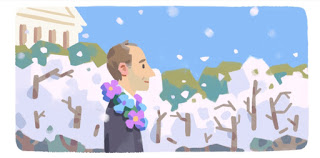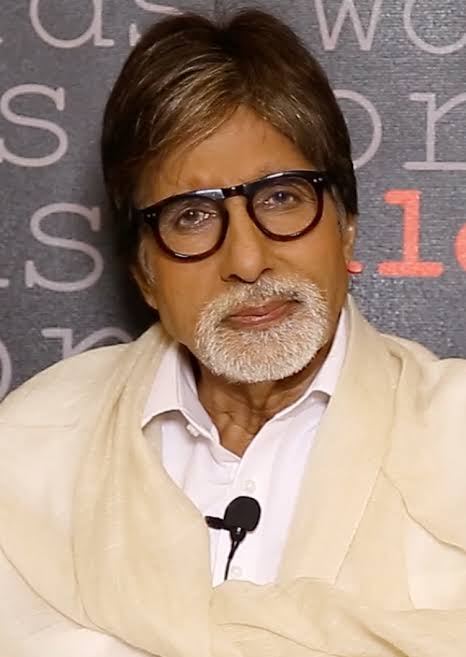Frank Kameny: In celebration of Pride Month, Google honours gay rights activist with Doodle
Frank Kameny, the leader of the Washington gay rights movement in the 1960s, was among a group of activists who marched down Pennsylvania Avenue during Martin Luther King Jr.'s 1963 March on Washington for Jobs and Freedom. He protested with a homemade placard.
"No more king," it read.
Kameny, a veteran civil rights leader who supported gay rights before gay rights became an issue, was among about 100 gay people arrested during the 1963 march. On Thursday, Kameny died at the age of 91.
"Frank Kameny was the voice for gay men and women for many years, and not only gay men and women, but black men and women, and women of color in general," said Deb Shaughnessy, a gay rights activist who is vice president of programs for the Human Rights Campaign.
Frank Kameny, who died Thursday at age 91, was the leader of the gay rights movement in the 1960s and 1970s. (Steven M. Rosenberg/The Washington Post)
Gay activists "should never forget that, even if they can't say their names or what they do. There are hundreds of gay people who would be alive today if not for Frank Kameny," she said.
Kameny organized some of the most notorious protests during the 1960s and 1970s. He led a parade to the White House for gay rights leader Bayard Rustin during the late 1960s and marched in the 1973 gay rights demonstration for which Frank Monroe and other activists were arrested for violating a Washington law prohibiting public signs.
In 1973, after a rally for gay rights held on the steps of the U.s. Capitol, Kameny, along with gay activists who held rainbow-colored banners, were arrested for violating a Washington law against public displays of homosexuality.
Kameny was arrested for marching in the gay rights parade on the streets of Washington on June 21, 1973. (Susan Bager/AP)
He was also arrested for protesting outside the White House during the inauguration of President Ronald Reagan. In 1986, Kameny sued the U.S. Postal Service after the agency refused to deliver his newspaper because of his advocacy of gay rights. He won, and a judge ordered the Postal Service to pay the court fees of those arrested during the 1973 march.
Kameny said in an interview this week that he was among the founders of the Gay Political Caucus of the American Civil Liberties Union in the 1950s, and that he advocated for gay rights "whenever gay people came up," whether in the courts or outside public forums.
Frank Kameny, left, with Karen Maynard and Bill Wilson in the 1960s. (Photos courtesy of Karen Maynard)
Kameny was born on July 22, 1925, in Washington to a musician father. He began organizing gay rights demonstrations in the 1950s, although gay rights did not receive widespread attention until the 1968 assassination of gay rights leader Charles H. Kameny, his cousin.
Kameny helped organize the first gay rights demonstration held in Washington, a march for gay rights at the behest of civil rights leader Martin Luther King Jr. Kameny left King's organization in 1965 because of disagreements over the organization's direction. Kameny organized demonstrations and held marches during the 1960s.
Gay activists were called a "bunch of freaks" by Kameny in the early 1960s, he said in an interview this week.
Kameny wore a pink shirt and a flamboyant suit for the march. He said people threw eggs at him and that a few women spit at him, but the demonstrations did not put him in danger. He was the speaker at some of the marches.
Frank Kameny, center, with gay rights activists Elizabeth Barry and Helene Crenshaw at a gay rights demonstration on the day the Post reported on the Obergefell v. Hodges decision to the U.S. Supreme Court in 1998. (Susan Bager/AP)
Kameny met Alan Frank Kameny at Harvard, where he was a student and Frank, a sociology professor, was a visiting professor. The two were in a relationship for years.
Kameny had been a student at the University of Michigan in the 1930s.
In 1972, Kameny published "The Gay Revolution," a book that offered a hopeful vision for gay rights and criticized the Washington police who arrested gay rights demonstrators during the 1973 march.
In the mid-1970s, Kameny worked for the Gay Political Caucus, an advocacy group founded by Franklin Kameny. Kameny would occasionally find himself in confrontation with political opponents when he worked for the group.
"There was always opposition," Kameny said.
Frank Kameny died of pneumonia, chronic kidney disease and aneurysms on May 26, 2005.
"I have never been prouder to be gay than I was in 1976 when Frank Kameny gave me a public way to say gay was okay," one of Kameny's close friends, Jack Kamenick, wrote in a Facebook post.
[Gay activists face riots, arrests at 1968 Stonewall riot]
It was the gay rights demonstration held in the streets of Washington on June 21, 1973, that brought Frank Kameny into confrontation with the law. The march was organized by Kameny's fellow activists, gay rights leaders Ed Gay, Tom Kameny, Bill Wilson and Bob Shaffner.
Frank Kameny was arrested in the gay rights march on the streets of Washington. (Ed Gay)
Frank Kameny was an activist, an educator, a mentor, a friend and a force for good, said Bill Wilson, a gay rights activist and a former vice president of the Gay Political Caucus.
The gay rights movement was driven by political activism, Kameny said. People should not be arrested just for being gay, he said.
It was this kind of activism that made Kameny a target, Kameny said.
"There were gay youths at those marches," Kameny said this week.





0 टिप्पणियाँ
Hillo dosto